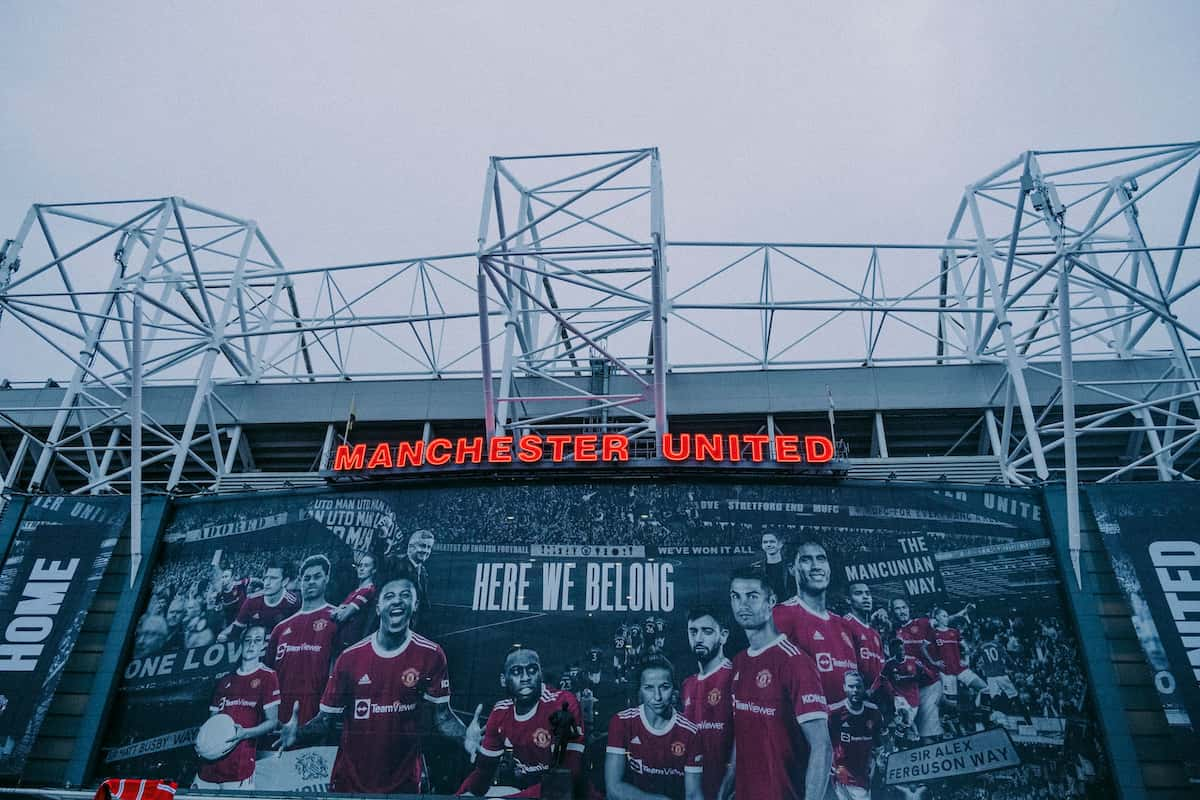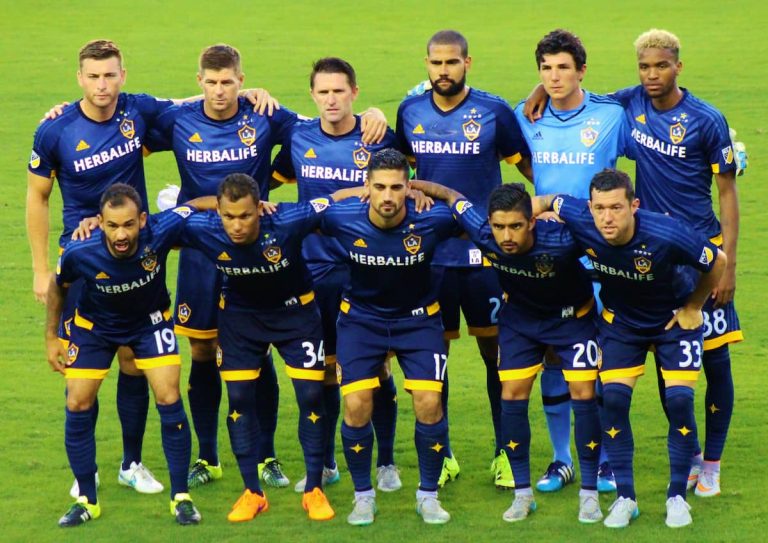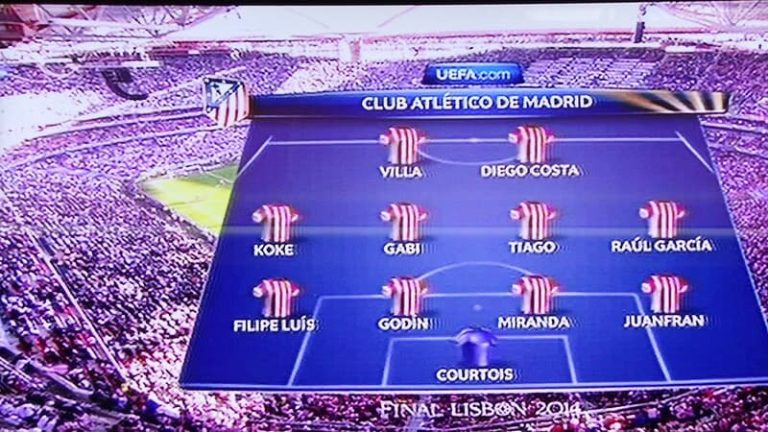How Do Football Clubs Make Money?

Football and money go hand-in-hand with one another, with both players and clubs being bought for incredibly high prices. With this in mind, a common question asked by football enthusiasts is ‘How Do Football Clubs Make Money?’.
In this Elastico article, we’re going to discuss 10 different ways that football clubs make money, from huge broadcasting deals, to stadium naming rights to ticket sales. If you want to learn all about how football clubs make money, read on.
Table of Contents
How Does a Football Club Make Money?
Football clubs make money in the following 10 ways:
- Broadcasting revenue
- Sponsorships
- Player transfers
- Ticket sales
- Merchandise
- Prize money
- Stadium naming rights
- Club-owned restaurants & hotels
- Club museums & stadium tours
- Renting out the stadium for concerts and events
1. Broadcasting Revenue
One of the biggest sources of income for football clubs is through TV broadcasting. With football becoming more and more popular across the world each season, there are more opportunities for football matches to be shown live on TV.
Different providers will pay for the rights to show football teams live on air. In the UK, the most common providers are Sky Sports and BT Sports. According to Statista, Manchester City made a staggering £146 million in broadcasting revenue alone during the 2021/22 season.
It’s worth noting that the amount of money football clubs earn from TV rights is highly dependent on which tier they play in. In a football pyramid, more matches will be shown live on TV in the higher tiers. For example, a team playing in the Premier League is much more likely to be on TV in comparison to a side playing in League Two.
2. Sponsorships
Sponsorships are everywhere in sport, not just in football. One of the key sponsorships for football clubs to get right are the sponsors for their kits. Each team will agree deals with different sponsors for the following:
- A football kit deal with a brand such as Adidas, Nike, Puma etc.
- A main sponsorship deal with a company who will put their logo on the front of each kit.
- Further sponsorship deals with companies who will put their logo on other areas of each kit, including sleeve sponsors and short sponsors.
The most elite football clubs will be able to demand the highest sponsorship deals, which makes sense as they’ll have a greater global reach. This means that the sponsor will be exposed to a lot more consumers.
When looking at the top sponsorship deals in the Premier League, Manchester City come out on top, having received £67.5 million for their sponsorship deal with Etihad, according to Statista. It’s not surprising to see the “top 6” clubs rank the highest amongst all teams in the league on this metric in the 2022/23 season:
- Manchester City (Etihad) – £67.5 million
- Liverpool (Standard Chartered) – £50 million
- Manchester United (TeamViewer) – £47.5 million
- Tottenham Hotspur (AIA) – £40 million
- Chelsea (Three) – £40 million
- Arsenal (Emirates) – £40 million
3. Player Transfers
Another key source of income for football clubs is though player transfers. This is highly dependent on a club’s transfer strategy, though, with some clubs mainly making a loss on their transfers rather than a profit.
A team like Brighton demonstrate an incredibly well-thought-out transfer strategy that has helped them make significant profits on their players. Because Brighton are a team who invest heavily in scouting and football data, they’ve been able to identify lots of young players in leagues across the world that they can sign for small fees and sell on for much larger fees.
Examples of these players include Marc Cucurella, Ben White, Yves Bissouma, Leandro Trossard and Alexis Mac Allister. Brighton have opted to use this transfer strategy because they don’t have the luxury of being classed as one of the “top 6” clubs who can spend lots of money on transfers. This is why lots of big clubs lose money on their transfer policy.
On the other hand, a top 6 team like Manchester United has been at fault for buying lots of players at high prices over the years while selling their players at lower prices. Their signing of Paul Pogba epitomises this strategy, having let him leave the club for free on two separate occasions while also signing him for a world-record £89 million fee in 2016.
4. Ticket Sales
Another key way that football clubs make money is through ticket sales, and this revenue stream covers the following types of sales:
- Individual tickets for matches
- Season tickets
- Home and away memberships
The amount of money a football club can make from ticket sales varies on a number of factors, including the size of the club’s stadium, the popularity of the club, and the level of competition.
Stadium Size
The larger a club’s stadium, the more tickets they’re able to sell, which means they can make more money from this revenue stream. In La Liga, a team like Barcelona can sell up to 99,354 tickets whereas a team like Eibar, who recently played in the Spanish top flight, could only hold 8,164 spectators in their stadium.
Club Popularity
Another key factor in making money on ticket sales is the popularity of each club. This is dependent on geographical location, style of football, manager and form. Teams based in larger cities are likely to have more fans, and having a likeable manager that plays an exciting, attractive style of football can increase a club’s popularity, thus increasing their ticket revenue.
Level of Competition
Clubs playing in more prestigious competitions are likely to be able to sell more tickets on match day as spectators are attracted to watching the biggest matches possible. It’s also worth noting that teams that have lots to play for will also attract bigger audiences.
For example, a side that finds itself mid-table for the majority of the season won’t have much to play for, which can subsequently make watching the matches for those teams less exciting. On the other hand, a club that is either in the running for promotion, the play-offs, or is in a big relegation fight, has the ability to attract more spectators, as there is more on the line for these clubs, making the occasion more exciting.
5. Merchandise
Selling merchandise is another way that football clubs make money. Clubs sell a wide range of merchandise including football shirts, scarves, hats, training kits, jackets, and much more. This is successful because owning merchandise is one of the easiest ways for fans to demonstrate their love and admiration for their club.
With most clubs releasing three new kits each season, it presents new opportunities to make money through this revenue stream every year. To show the true potential of this revenue stream, we have to look at how much money Manchester United made through shirt sales following Cristiano Ronaldo’s return to the club in 2021.
Within 10 days of his re-signing, the Red Devils smashed sales records, making a staggering £187 million on shirt sales alone.
6. Prize Money
Winning competitions is another way that football clubs make money. For the biggest clubs, there are usually a handful of competitions they have the potential to win each season. A top 6 club in England will compete for the Premier League, the FA Cup, the League Cup and one of either the Champions League or the Europa League.
Winning just one of these competitions will bring in significant funds to a football club, with the biggest competitions bringing in the largest sums, i.e. the Premier League and the Champions League.
Although, not all teams have the ability to compete for these top prizes, it’s also fortuitous to go a long way in the competitions. If a team is able to reach the latter stages of one of these competitions, it’ll still bring in revenue.
7. Stadium Naming Rights
Another lucrative way that football clubs make money is by selling their stadium naming rights to the highest bidder. In recent times, we’ve seen this happen more often, as it has helped clubs attain significantly more investment from their sponsors.
Here are some examples of stadium name changes:
- Camp Nou to the Spotify Camp Nou (FC Barcelona)
- Walkers Stadium to the King Power Stadium (Leicester City)
- Fußball Arena München to the Allianz Arena (Bayern Munich)
It’s been reported that the Spotify deal that Barcelona signed is worth up to €280 million, which would make it one of the most significant sponsorship deals in the world. This has been helpful for the Catalan juggernauts as they try and find ways to help them climb out of financial turmoil.
It’s likely that we’ll see more and more of these deals take place in the future as more football clubs explore the options available to them.
8. Club-owned Restaurants & Hotels
Football clubs will also make money by expanding the brand of their club through various means. One of those ways is by opening club-themed restaurants and hotels. A good example of this lies in Manchester, where Old Trafford have ‘Hotel Football’, offering impressive views of Manchester United’s football stadium.
This method is a simple way of opening another revenue stream for football clubs to utilise in order to make more money each year.
9. Club Museums & Stadium Tours
In addition to club-owned restaurants and hotels, it’s common practice for football clubs to have a club museum. These museums tend to be accessible for fans all year round, except on match days, and gives enthusiasts a great insight into the history of the club.
Attending a club museum or a stadium tour is a profitable business for football clubs and is something that most big clubs will make available to their fans. It’s a win-win all round, as the club will make money and the fans will receive a great experience in return, which will bring them closer to the club that they love.
10. Renting Out the Stadium for Concerts and Events
Our list of ways in which football clubs make money concludes with revenue made from renting out football stadiums for concerts and events. Some examples of football stadiums that do this, are:
- Etihad Stadium (Manchester City)
- Emirates Stadium (Arsenal)
- Anfield Stadium (Liverpool)
- Tottenham Hotspur Stadium (Tottenham)
- Villa Park (Aston Villa)
- Carrow Road (Norwich City)
- Bramhall Lane (Sheffield United)
Clubs can charge music artists significant fees for the use of their stadium, and may also earn a fee from the tickets sold for the event. As the capacity of most football stadiums being used for concerts is over 20,000, there is lots of money to be made via this revenue stream.
Conclusion
How does a football club make money? Football clubs are money making machines, and there are many different revenue streams clubs can explore in order to become more profitable. These range from selling players, tickets and merchandise to working with sponsors, hosting concerts and much more.
With more and more investment coming into football, we only expect the amount of money being made by clubs to increase in future years. More opportunities to make money will present themselves, and the gap between the top leagues and other leagues will continue to widen.
We hope that you learned the ways in which football clubs make money in this Elastico article.
Frequently Asked Questions
Do Football Clubs Actually Make a Profit?
Like any business, some football clubs will make a profit and some won’t. This primarily comes down to how well the club is run, and whether they’re exploring all the revenue streams available to them.
How Do the Owners of Football Clubs Make Money?
Football club owners can make money through a number of different revenue streams, including:
– Selling players for profit
– Winning competitions
– Agreeing lucrative sponsorship deals
– Selling out each match day
– Selling the football ground’s naming rights
– Receiving TV broadcasting revenue






